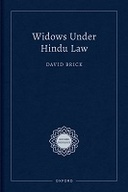Explore

This book comprises the first exhaustive history of the treatment and status of widows under classical Hindu law or Dharmaśāstra, as it is called in Sanskrit. As such, this book is intended both to contribute to our understanding of how elite male attitudes toward women evolved during precolonial periods in South Asia and to provide crucial context for important colonial debates on Hindu widow remarriage and the Hindu custom of widow self-immolation, or sati. The Dharmaśāstra tradition spans over two millennia of South Asian history, from approximately the third century BCE to the eighteenth century CE. During this time, Hindu jurists treated at length and at times hotly debated four widow-related issues: widow remarriage and levirate, a widow’s right to inherit her husband’s estate, widow asceticism, and sati. Thus, this book is arranged into four chapters, one devoted to each of these four topics. In addition, it contains a summary, where an attempt is made to synthesize the major conclusions drawn in the book’s four main chapters, and an appendix, which addresses a widow’s right to adopt a son—a fifth widow-related issue that became the topic of some discussion in late Dharmaśāstra works and was a significant point of legal contention during the colonial period.
This book is included in DOAB.
Why read this book? Have your say.
You must be logged in to comment.
Editions

